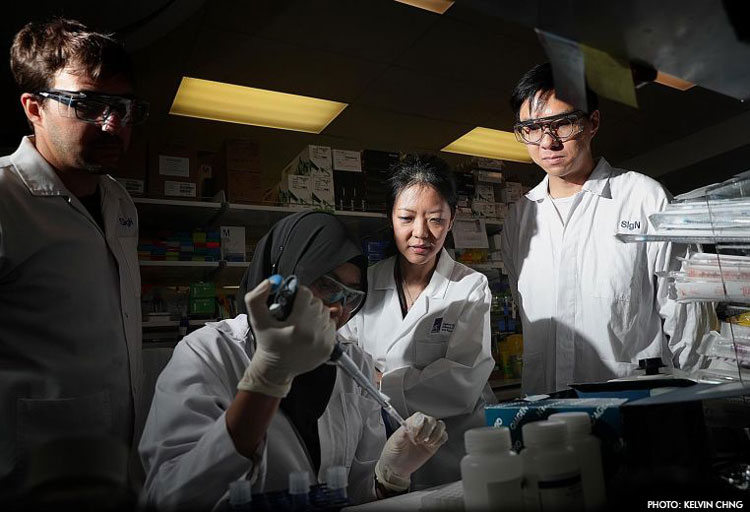Singapore’s fight against the coronavirus is set to continue on the research front, even as laboratory work for other projects is discontinued during the circuit breaker month.
Research institutions here told The Sunday Times that experimental facilities not involved in Covid-19-related research will be closed during this period.
A spokesman for the Agency for Science, Technology and Research (A*Star) said: “We have obtained permission for researchers working on Covid-19 scientific initiatives, which are classified as essential services, to continue working at A*Star premises under strict safe distancing measures and with all required precautions in place.”
The work includes research in diagnostics and therapeutics.
But telecommuting arrangements have also been implemented to enable staff to work from home, and A*Star said it is taking “reasonable steps to preserve research assets as necessary”.
Universities such as the National University of Singapore (NUS), Nanyang Technological University (NTU), Singapore Institute of Technology and Singapore University of Technology and Design (SUTD) have suspended all research activities that cannot be conducted through telecommuting.
But NUS and NTU researchers engaged in research related to Covid-19 can continue their work.
NUS food science graduate student Craig D’Souza rushed to his lab last weekend – after circuit breaker measures were announced – to discard plants he was growing for research. “Prolonged work in the lab is not allowed, so sadly I had to abort my experiment mid-way, but I was mentally prepared for that.”
An NUS spokesman said its Office of the Deputy President for research and technology is working with faculties and schools, as well as research institutes and centres, on research continuity plans.
But as such plans are being ironed out, funding bodies said they will work with collaborators to adjust timelines and funding of affected projects.
The National Research Foundation said it will extend the funding duration of projects affected by the closure of facilities, based on their nature and progress status.
Representatives from various research institutions were quick to add that working from home does not mean all research activities must cease. Professor Yeo Kiat Seng, associate provost of research and international relations at SUTD, said other important aspects of research, such as literature review and inquiry, analytical work, and software and computational analysis, will still continue.
An NTU spokesman said its researchers are also encouraged to adjust their research timelines to focus on work that can be done off campus during this period.
Mr Lim Liang Jim, group director of National Parks Board’s National Biodiversity Centre, said the board has advised its roughly 150 active research permit holders to suspend all field surveys for this period. He added: “Our researchers will adjust their focus to conducting analysis of results and other aspects which do not require fieldwork.”
NUS conservation scientist Koh Lian Pin said Singapore’s “prudent and decisive whole-of-society response” to the crisis requires everyone – including the scientific community – to make adjustments.
“Field ecologists, for example, know that nothing in the field will ever go exactly according to plan.
“We are used to adapting and making the most of challenging situations,” said Professor Koh.
“It is vital that we proactively take care of the more vulnerable among us, including our students and early career researchers.”
Singapore Management University did not respond to queries by press time, while Singapore University of Social Sciences declined to comment.
Source: straitstimes.com

